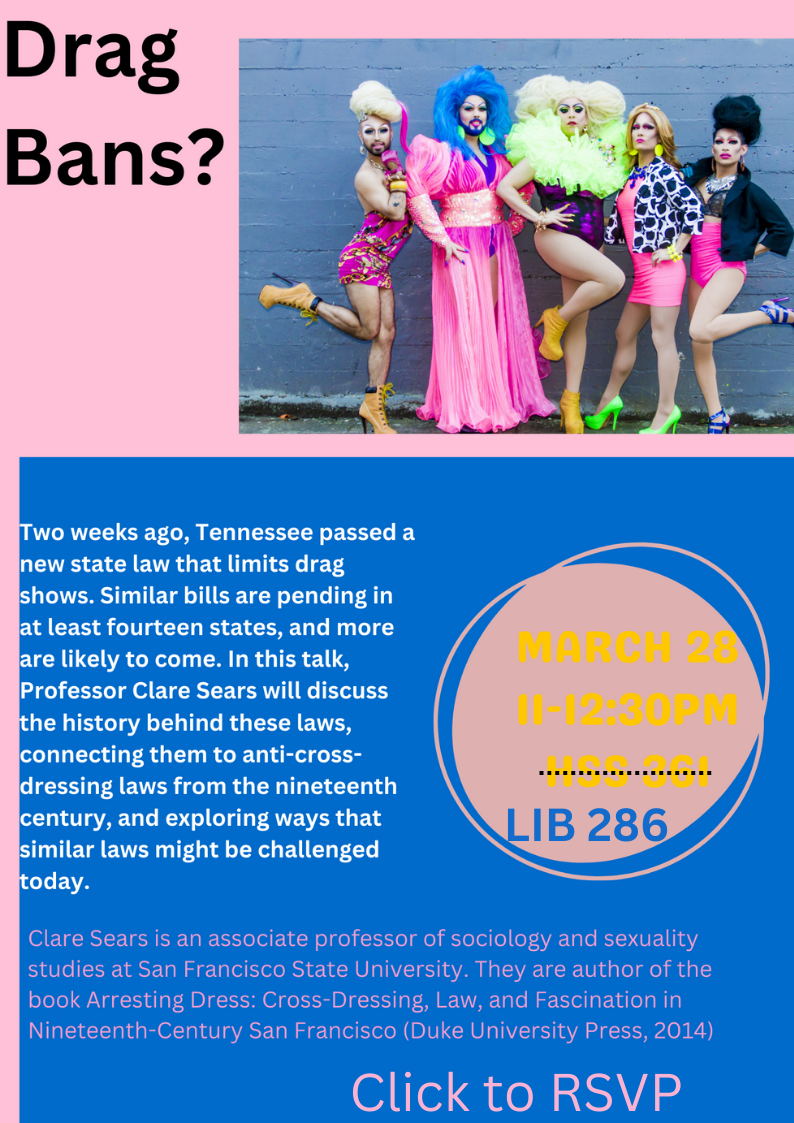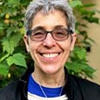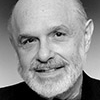A conversation with Jim Brogan: Professor recalls early days of Sexuality Studies
College of Health & Social Sciences Associate Dean John Elia (left) and Professor Emeritus Jim Brogan
Jim Brogan, professor emeritus of English at San Francisco State University, is a distinguished teacher with an exemplary writing career in support of human sexuality studies. Notably, he taught the first course on a gay topic at SF State in the early 1970s. In this interview, Professor Brogan shares his memories of teaching sexuality studies at the University.
Please tell us about your early days in the English Department at SF State and how you became interested in gay and lesbian studies back then. What courses did you teach?
Well, I came to State in 1967. The chairman [of the English Department] was Caroline Shrodes, who was a lesbian, and we had many gay colleagues; of course, no gay courses back then. So it was a very non-threatening environment, as academic environments went in those days. The first official gay course was 1972. Now, that was after I received tenure, but before that, much happened.
One course I taught was called “Problems in American Identity,” and some people in the department have called that the first gay literature course in the country; it was 1969. “Problems in American Identity” — you could put a lot in that. But it was a comparison through literature of gay and straight lifestyles; straight and hip lifestyles also. So that kind of got the ball rolling. But of course, the strike came along in 1968 into 1969, and one of our departmental members, Senator Hayakawa, became SFSU’s president, and because he resented the young faculty in English being pro–Black studies and pro–strike, those of us who joined the union and were on strike were vulnerable to being terminated. And I was terminated. During the summer of ’69, I received a notice saying that I had one more year to teach and that’s it — pending an investigation into to what I had done. Of course, with no charges presented, one could project almost anything.
That summer, the summer of ’69, I received word that I had been reinstated. (Unfortunately, many of my colleagues weren’t that lucky and wound up being let go.) Now, those were the years of four-year tenure, so I went from terminated to tenured within the course of seven, eight months. So I found myself in the summer of ’71 looking forward to school with the possibility of teaching gay lit. And I went to the chair, and she said, “Okay, yes, wait ’til you officially have tenure,” which I got that year. And then in the fall of 1972, I started “Gay and Lesbian Love in Lit,” and it was very popular right from the beginning. No problems at all. I never had any problems. So those two courses — “Problems in American Identity” and “Gay Love in Literature” — those were the first two courses.
Tell us about your early involvement in the Human Sexuality Program [later the Sexuality Studies Department].
Well, I had been connected with John De Cecco [a psychology professor who spearheaded the founding of the Human Sexuality Program] — we had some mutual friends. John visited my class and realized that, hey, you could be out in class and talk about these issues. So I was the role model for John. [Laughs] John De Cecco just turned 91, and he’s still going strong.
As the Human Sexuality Program got going under John, the “Gay Love in Lit” course became part of that program and became double-listed. I remember our committee meetings, always on Friday. And, of course, he didn’t have much of a budget, but we did a lot with our resources and that’s how the momentum got started.
Over the years I think it was very useful to have a set of allies in Sexuality Studies. It was sort of my second department. People I could trust, people who shared my political views to treat everybody equally.
What do you believe were your most significant contributions to the students who took courses with you?
I think I was a pretty good role model. I always believed in getting to know students, helping people out, and being personally available and getting to know them. I have many students I’m still in touch with, and I learned from them. I always encouraged students to write about their lives and connect their lives with the literature, and so there was always a kind of a cross-feeding going on involving my taking from them and them taking from me. So that is one of the things I loved about this school. I’ve never used a microphone, never had one of those 200-people courses. I knew every student and did my best to get to know them. I loved that environment.
You’ve published some books on LBGTQ themes. How did you come to write them?
One of the things that happened as a result of the strike…one of the victories was that the parameters of possibilities for scholarship, tenure, promotions, was expanded. One of the possibilities you could take on was creative work. So I took them up on that, and the first book I wrote was called “Jack and Jim: A Personal Journal of the 70’s.” (My husband Jack and I are still together after 44 years.) Back then, we were brought up at a time when society told you that no gay relationship could work When this relationship started obviously working, I said, well, you know, this needs to be recorded. So that was the first book, our first 10 years together working things out to have an egalitarian relationship.
And then, two of the other books…one of my pet themes, even though I’m not bisexual, is bisexuality. I feel it’s given a very short shrift. It’s very much misunderstood. And so I wrote an almost…well, it was a young adult book, but it was a young adult book that never found its way into many high school libraries. [Laughs] “Casey the Bi-Coastal Kid,” about a kid who grew up and his parents were divorced, so he had a parent on each coast, but of course he was also exploring bisexuality. And then the most recent book I wrote was called “Vitamin Q,” and that was an attempt to show a man who is just about equally gay and straight. All the male bisexuals I’ve known have wound up married to women. I wanted to dramatize how a man can, for reasons unique to him, choose to go the more difficult route. And of course that difficult route is becoming less difficult with legalized gay marriage. One doesn’t have to give up marriage, one doesn’t have to give up having a family anymore, but there’s still the resistance on families’ parts, and so on.
I’ve written one more book called “A Time to Live,” which was really a documentary masking as a novel. Everything in it was true, except that it was from the perspective of my remained in San Francisco and not found my husband, my long term relationship. It’s about a bachelor gay man in San Francisco — what his life is like, what his friendships are like, how he handles the AIDS crisis. He himself is HIV negative, but he loses several friends and has frustrations with romantic relationships, as many gay men do. It was published in 1995, just when AIDS no longer was so deadly, when people had a pretty good chance of surviving.
You and your husband, Jack Post, generously set up and have been funding a number of student scholarships. Can you tell us a bit about those scholarships and what you hope students will gain from them?
Well, there are three scholarships. There’s two in humanities: one for queer studies in humanities, called the Jack Post-Jim Brogan Scholarship, and one in honor of an older colleague who has passed away, so it’s called the Joel Dorius Memorial Scholarship, and that’s for a grad student doing — he was a Shakespeare scholar — doing Renaissance studies. And then the third one, the Jim Brogan Teaching Scholarship, is in Sexuality Studies, for the best teaching assistant, because I want to encourage good teaching.
What is your hope for the Sexuality Studies Department, its students and its faculty, now and into the future?
Well, I hope it just keeps thriving. Such education is still a very necessary part of culture. There’s still so much to learn, and the media is more or less saturated with sex in a way that can be extremely misleading to young people. So I think just the idea of getting the scientific truth out there is one thing. But then I think the whole idea of a humanistic multi-dimension person is closely connected with sexuality. So much of our world-view comes from sexuality in terms of perceiving life and enjoying life. There are so many ways to study and learn from the past, from new discoveries. I truly hope Sexuality Studies remains vibrant and fully funded.


